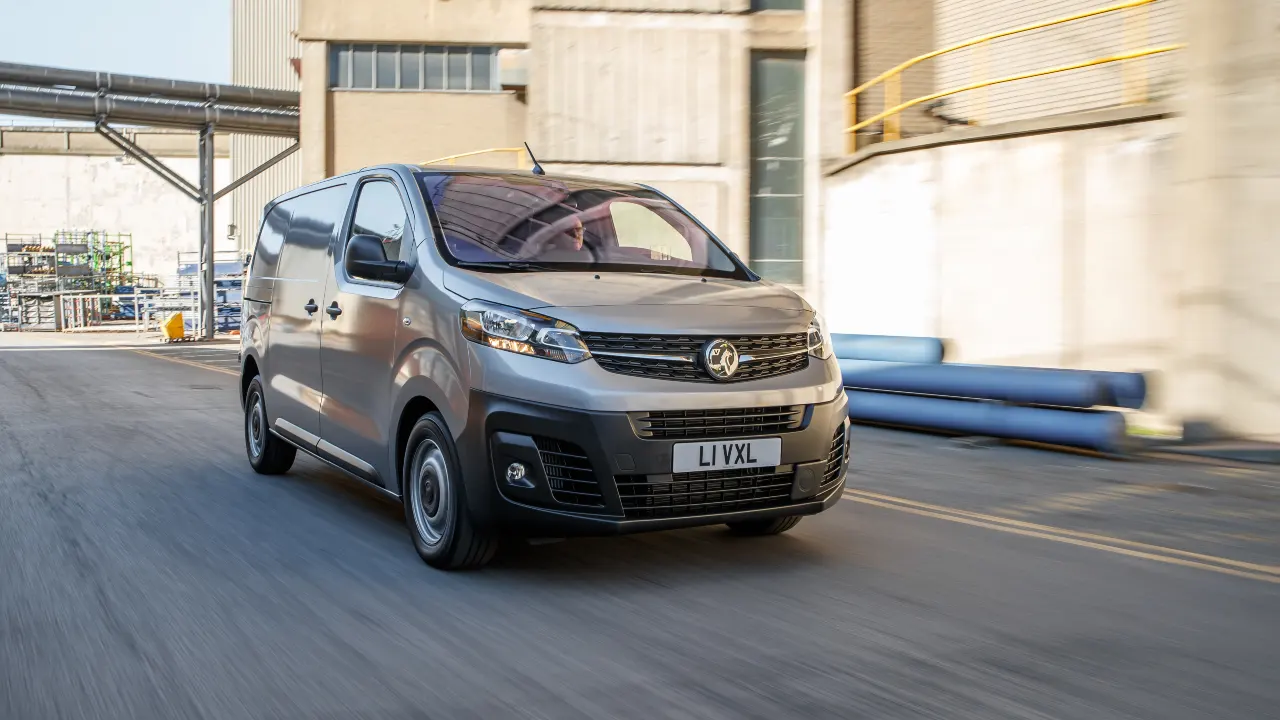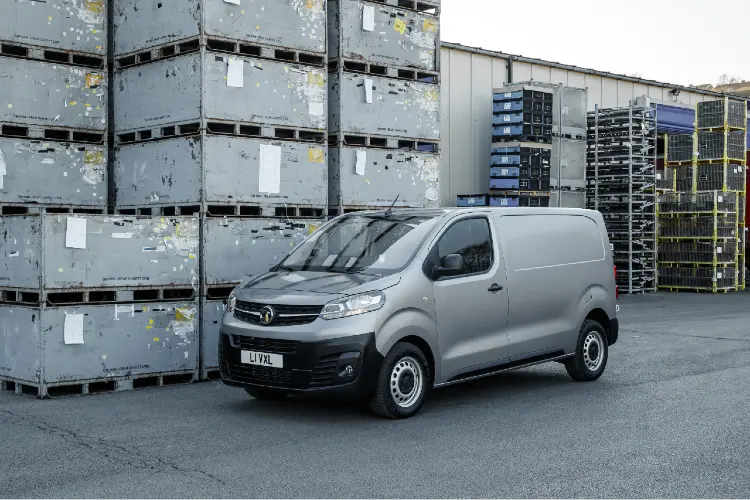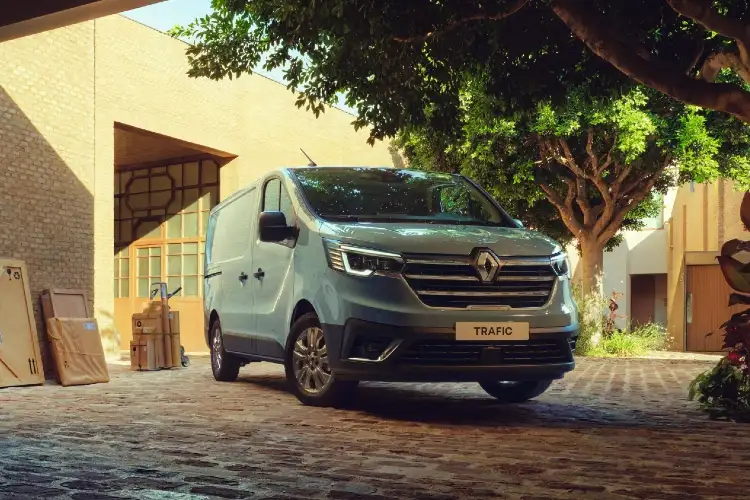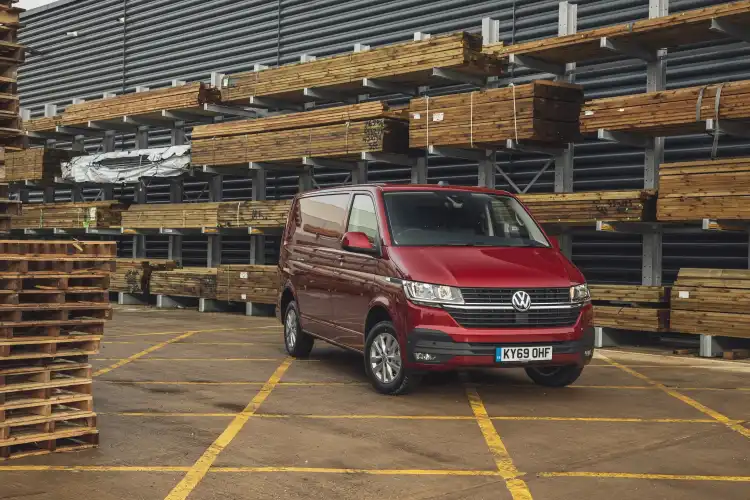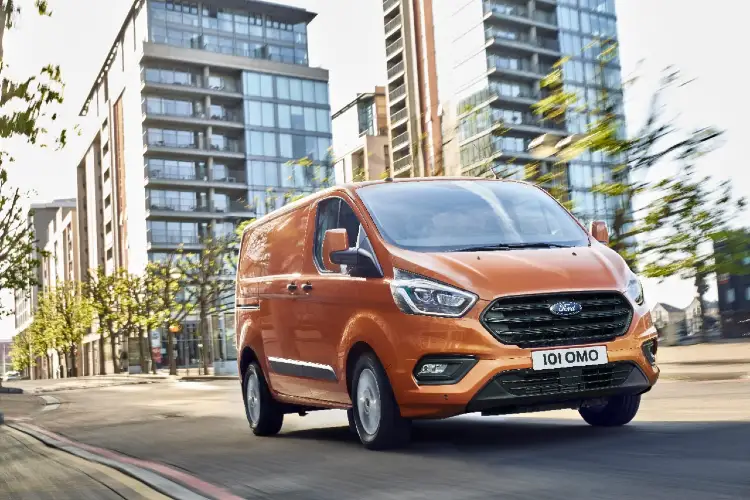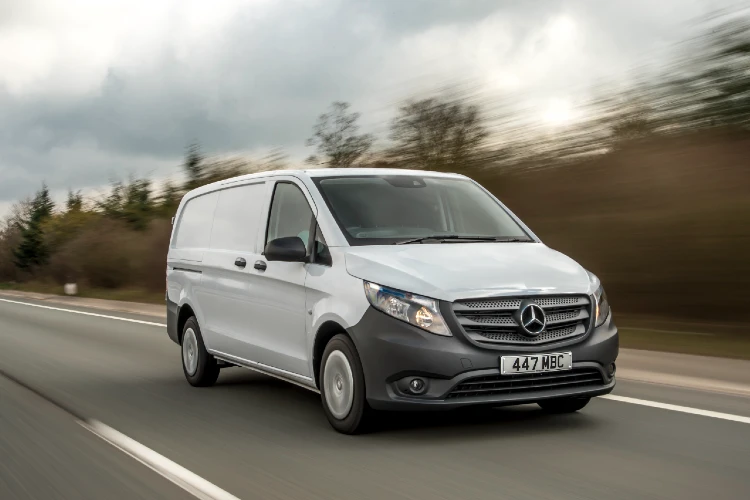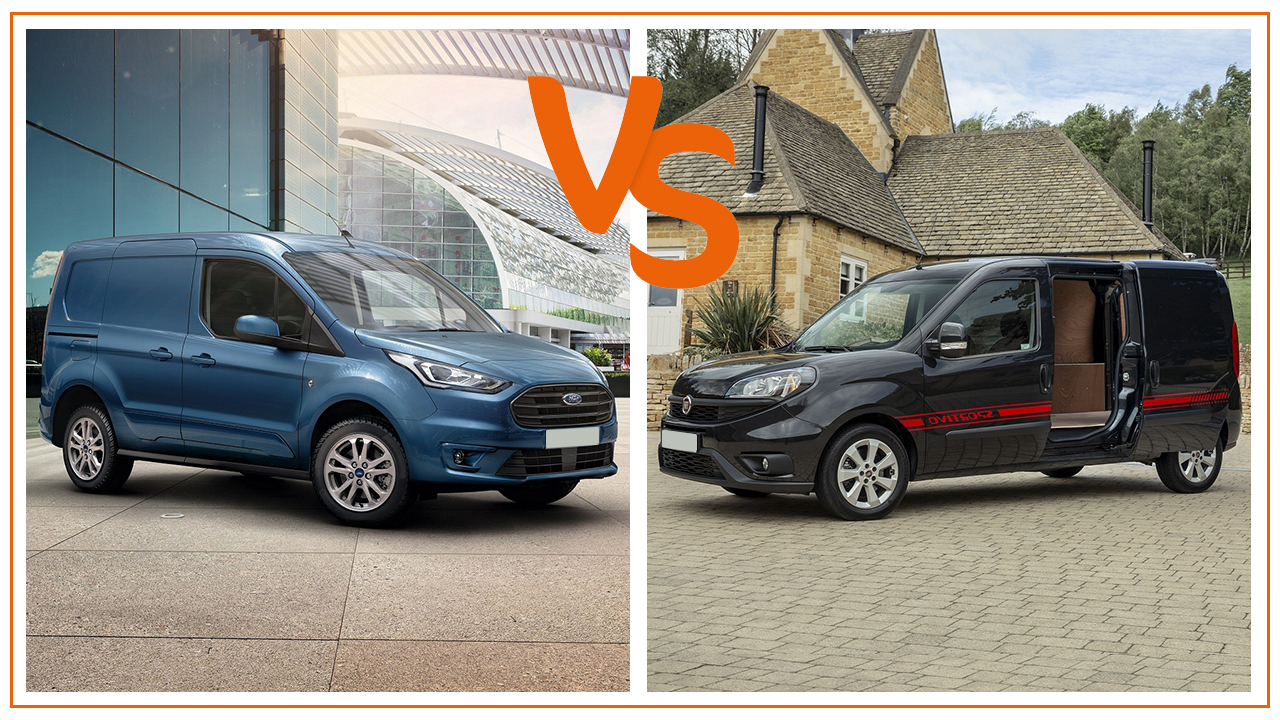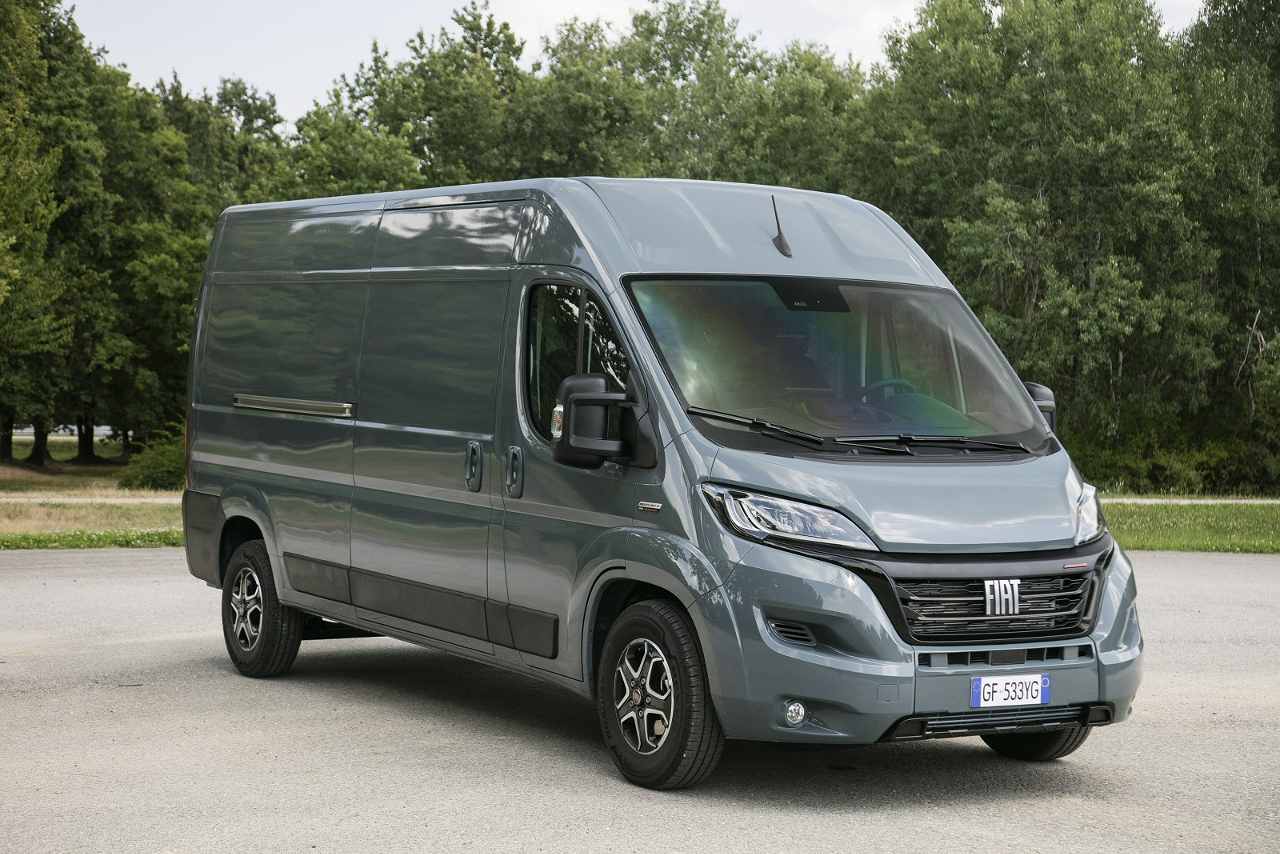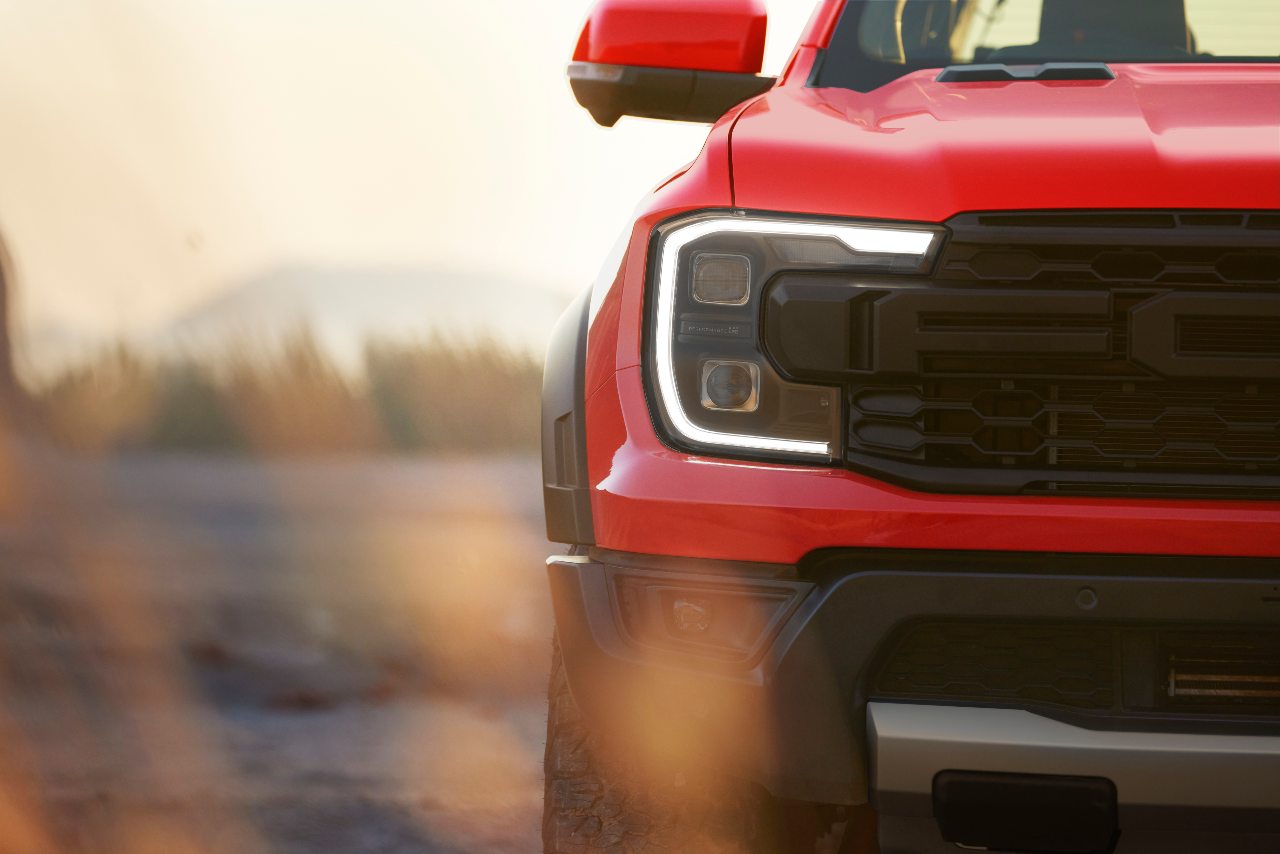By Tom Roberts Date Published 12/7/23
The cost of running a medium van plays as big a part in helping you decide which one to choose as its size, colour and durability. And while you don’t have to worry about depreciation when leasing one, the amount of fuel you’ll buy and use in a working week must be considered. Trawling through endless brochures and articles to find out fuel consumption numbers is a hassle, which is why Vanarama Van Expert Tom Roberts has pulled together a list of the most economical medium vans by MPG.
The medium vans category has improved in recent years, with cab design and equipment levels almost matching some passenger cars, but the most important place they've improved is the engines. Without good engines, payloads would not be high and the vehicles would be inefficient to run. In fact, they’re more powerful than ever and the amount of torque produced by some engines with relatively small capacities shows just how efficient they are.
Return on investment is crucial when it comes to choosing a van, and one of the best ways to establish if a vehicle will be cost-effective is to check out its miles-per-gallon (MPG) ratings. No one wants to go digging through brochures trying to find them so here are the top 5 medium vans ranked by MPG. I’ve taken the most economical van in the range, so if you want that MPG rating make sure to choose that particular variant.
The Top 5 Most Economical Medium Vans
Vauxhall Vivaro L1 2900 Prime 100PS: 42.1mpg Renault Trafic SL30 Start 130hp: 40.4mpg Volkswagen Transporter T26 Startline 110PS: 40.4mpg Ford Transit Custom 280 L1H1 130PS mHEV – 40.35mpg Mercedes-Benz Vito 114 L1 Progressive 134hp: 38.7mpg
Vauxhall Vivaro L1 2900 Prime 100PS: 42.1mpg
Top of our chart is the ever-popular Vauxhall Vivaro. I’ve used this van to represent all of the others that share the same Stellantis group platform - Peugeot Expert, Fiat Scudo and Citroen Dispatch - which will have similar (potentially identical) figures. The 100PS engine is one of the smallest in capacity available in the medium van sector at just 1.5 litres, and this is what gives it the edge. It’s also the least powerful in the top 5, which might be something to bear in mind when you’re making a decision. It’s clean though, with CO2 emissions quoted at 172-185 grams per kilometre (g/km). Ultimately, it’s the winner in this list.
Renault Trafic SL30 Start 130hp: 40.4mpg
Amazingly, ‘second place’ is shared by two completely different vans, so I’ve ranked them in terms of which is the newest - so, well done to the new Renault Trafic. With its 2.0-litre engine conforming to Euro 6d emission regulations, it produces 130hp and 320nm of torque, making this van a breeze to drive around town with a full load in the back. Also helping to keep running costs down are the Trafic’s long service intervals of 2 years or 24,000 miles, whichever comes first. Fewer services also means less costly time off the road, and emissions are stated to be 182g/km under test conditions.
Volkswagen Transporter T26 Startline 110PS: 40.4mpg
In second ‘second place’ is the fabulous VW Transporter. These days, 110PS isn’t going to win any traffic light Grand Prix races, but this isn’t likely to put off the loyal customer base of this van (who rarely consider anything else). The engine is a 2.0-litre unit conforming to Euro 6D regulations, offering up a torque output of 220nm - that’s quite a way off the performance of the Renault Trafic, and I can’t help but wonder if the van ditched the 5-speed gearbox and mounted a 6-speed unit that it could have claimed true second place. Finally, in terms of emissions, the Transporter is stated as achieving between 183-195g/km in the official tests.
Ford Transit Custom 280 L1H1 130PS mHEV – 40.35mpg
Just avoiding a three-way split for second place by the smallest margin is Britain's best-selling van, the Ford Transit Custom. It only snaps at the competition's heels due to the small benefit the mild hybrid version (MHEV) of the 130PS brings to fuel consumption figures. The MHEV version, when you’re slowing down or braking, recoups and stores energy back in the battery pack. This is then used to assist the vehicle while driving, making it a little more efficient and reducing fuel consumption around town. Don’t get too excited though, the non-mild-hybrid version of the same van still achieves 39.2mpg under the same test conditions. Torque output is an excellent 360nm, making light work of motorway gradients when fully loaded, and emissions are 184g/km.
Mercedes-Benz Vito 114 L1 Progressive 134hp: 38.7mpg
Still returning a fuel consumption figure that manufacturers could have only dreamed off a few years ago, the Mercedes-Benz Vito completes our line up of the top 5 medium vans by MPG with a respectable rating of 38.7mpg. The German manufacturer equips its medium van with a 1950cc diesel engine, which drives the rear wheels via a 6-speed manual gearbox. Like some other vans, an automatic option is available (in this case a very nice 9-speed affair) but these tend to have a slightly negative effect on fuel consumption. The power output of 134hp will give most medium van users enough performance, and the all-important torque output of 330nm is very competitive. If you’re interested in CO2 output, Mercedes-Benz quotes an official figure of 191g/km.
How is MPG calculated?
The stated MPG ratings used in this article are the official WLTP (Worldwide Harmonised Light Vehicle Testing Procedure) figures that all manufacturers must quote in their promotional material. All vehicles are put through the same tests to allow potential customers to make like-for-like comparisons between models.
It’s important to bear in mind that lots of real-world factors can bring this figure down when a medium van is in daily use. Payload, weather conditions and driving style are all impactful influences that vary on almost every trip, which means the real value in these quoted MPGs is for benchmarking one van against another. Although there are different cycles quoted in a vehicle’s test figures, I compared the ‘Combined’ figures. Some manufacturers will quote a ‘best case’ and ‘worst case’ combined figure, so to make a fair comparison I’ve quoted a midpoint between these when applicable. All CO2 emissions ratings I mentioned are also taken from the stated combined cycle figures.
As an interesting side note, WLTP figures are generally lower than the old NEDC official stats. This doesn’t mean that the vans have become inefficient, it’s just that a new way of calculating consumption has been introduced which is more rigorous and reliable.
Tom’s Takeaways
The UK Government's declared strategy to cease the sale of vehicles using combustion engines by 2030 in favour of electric vehicles means that MPG ratings now have a shelf life. But, if you're choosing a new van to drive right now, fuel costs are naturally a key deciding factor.
The vans above are the best for MPG in the medium van sector, but what I enjoyed most is the choice that top 5 offers you. If you want a medium van that has a great payload, then you might want to look at the Ford Transit Custom. If image is important, then the Volkswagen Transporter might float your boat. Or, for all-round practicality combined with economy, pick the Renault Trafic.
My point is that the medium van sector is as rich in choice as the entire van sector itself. You'll have no trouble finding a van that works for you and for your business here. And with all the vans in my top 5 being within no more than 3.5mpg of each other, you’re unlikely to have to sacrifice economy to get your ideal commercial vehicle.
Looking for something larger or smaller? Check out our experts picks for the most economical large vans and most economical small vans available now.
Most Economical Medium Van FAQs
Which fuel types give the most MPG and why?
Diesel vans are usually more economical than their petrol counterparts, because diesel fuel produces more energy than the equivalent amount of petrol and the combustion process is more efficient.
Does my driving affect my van’s MPG?
Absolutely! Hard acceleration and braking, for example, will eat into your fuel reserves and your bank account.
How can I drive more economically and save fuel?
Smooth driving, anticipating when you may have to brake and employing gentle acceleration will all reduce fuel consumption. Instead of cruising at 75mph on the motorway, obey the speeding laws for vans and drop back to 60mph - on a long trip you’ll definitely notice that the fuel gauge drops more slowly. If you want my own handy tip, drive as though you’ve got a bowl full of water on the passenger seat and you really don’t want to spill it. Find even more ways to save money on fuel with our tips on van fuel economy, or check our our picks of the most economical large vans and most economical small vans.
What is the difference between WLTP and NEDC?
WLTP superseded NEDC (New European Driving Cycle, which dated back to the 1980s) to provide customers with MPG figures that would be closer to those achievable with real-world driving. All manufacturers had previously suffered bad publicity when drivers who assumed that they would achieve 68mpg from their new van or car were getting closer to 50mpg. Where NEDC figures were generated using just a single driving cycle, WLTP uses dynamic cycles depending on the type of vehicle being tested. The distance covered during the test is more than doubled and the fitment of optional equipment can be taken into account.
What are Euro 6 standards and why do they matter?
‘Euro 6 standards’ refers to the regulations imposed on the emissions output from diesel vehicles. With the advent of low emission zones in our towns and cities, a van that doesn’t comply with Euro 6 (or above) emissions regulations will find it increasingly difficult to enter these areas without some sort of financial penalty. This is why it makes sense to lease a new van - you can be sure that it will comply with the latest rules, and, because you hand the van back at the end of the lease and perhaps decide to lease a new one, you’ll never have a van that is in danger of incurring charges. If zero emission zones become more commonplace, you could look at leasing a new electric van today to be completely future proof.
For more reviews, insights, comparisons and help with choosing your next vehicle take a look at our Van blog. If you’re ready to browse, take a look at our latest van leasing deals or medium van leasing offers.

